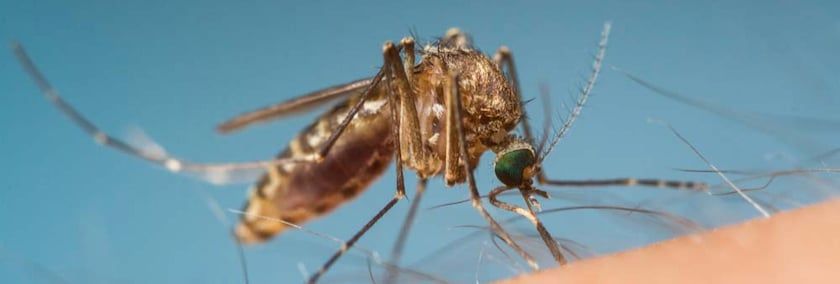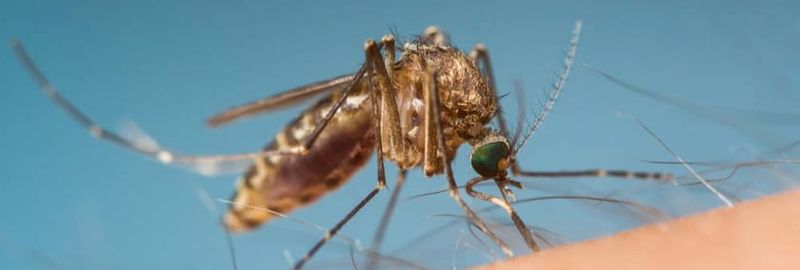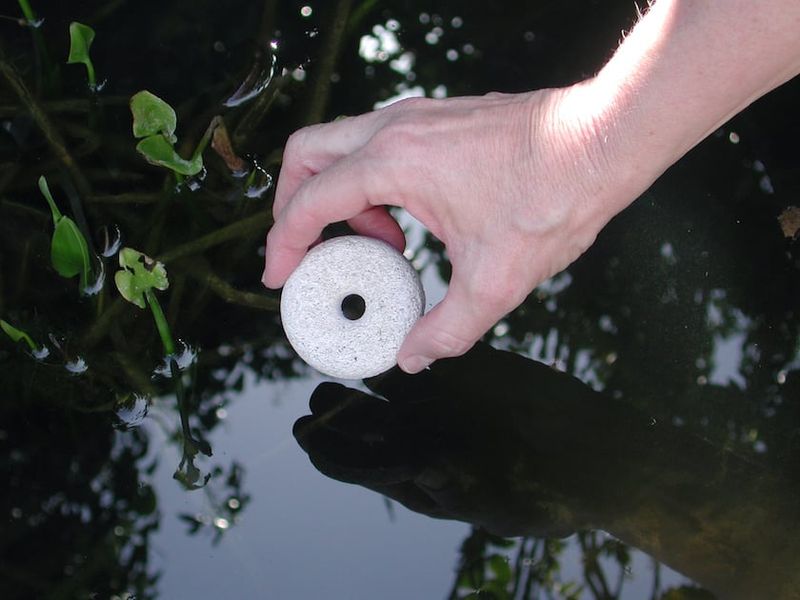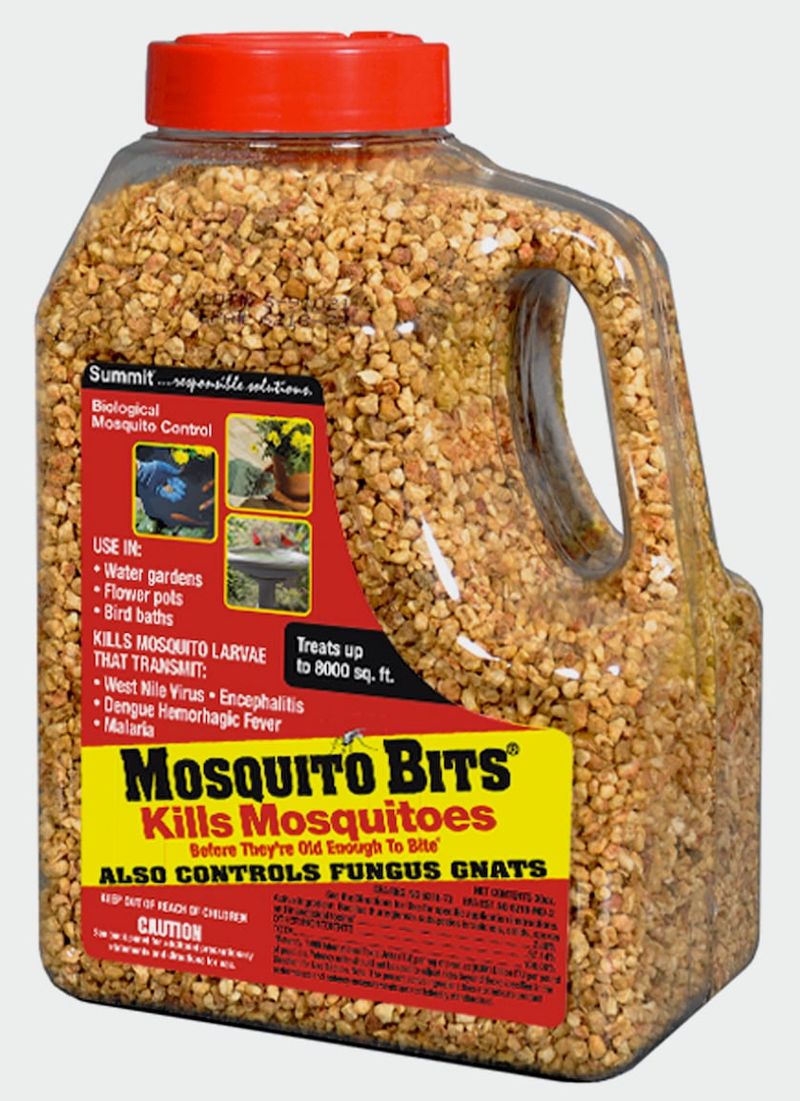Fight Back Against Disease-Spreading Mosquitoes


As summer heat builds, it’s time to prepare for another mosquito season. Mosquitoes proliferate in warmer weather, and more mosquitoes mean more mosquito bites.

Mosquito bites spread some of the world’s deadliest and most debilitating diseases including Zika virus, West Nile virus, malaria, chikungunya, dengue fever, and Eastern Equine Encephalitis.
Wherever there’s moisture during hot summer weather, there will be mosquitoes. But you can reduce your chances of getting bitten by mosquito pests by being “mosquito smart” and reducing places where mosquitoes can breed.
Why do mosquitoes bite?
A female mosquito will bite humans, mammals and birds in search of a blood meal so she can produce eggs. She can extract up to four times her weight in blood. Shortly after biting a person or an animal, a female mosquito lays her eggs in standing water—typically just a short distance from where the bite occurred.
To reduce the chances of getting mosquito bites, keep as much of your skin covered as possible by wearing long sleeves and long pants. Mosquitoes are attracted to darker colors, so wear light-colored clothing. Using mosquito repellent is another good way to keep mosquitoes—and mosquito bites—at bay. Apply EPA-recommended repellent directly to skin or clothing, following label instructions.
Reduce mosquito breeding sites
It doesn’t take much standing water to become a mosquito breeding site. “Some species of mosquitoes can breed in as little as a bottle cap full of water,” said Jonathan Cohen, mosquito control expert and President of Summit Responsible Solutions. “That’s why property owners need to be vigilant in eliminating places where water can collect and stand in their acreage, yards and gardens.”
To reduce mosquito breeding grounds, dispose of cans, plastic containers, old tires and other items that can collect water. Turn over wheelbarrows and drain children’s wading pools. Clean clogged roof gutters, which can become prime mosquito-breeding pools. Periodically empty saucers under ceramic pots to make sure they are not harboring mosquito larvae.
To prevent mosquitoes from breeding in places where water collects—including ponds, bird baths, animal watering troughs, gutters, ditches, drainage pipes and rain barrels—use a mosquito control product that contains BTI to kill mosquito larvae. BTI (Bacillus thuringiensis israelensis) is a bacterium that naturally kills mosquito larvae before they can grow up to become disease-spreading adults. Even though BTI is deadly to mosquito larvae, it is harmless to people, pets, fish, wildlife and beneficial insects. BTI is the active ingredient in Mosquito Dunks, the top-selling biological mosquito control product. When a donut-shaped Mosquito Dunk is placed in standing water, the BTI in the Dunk will kill mosquito larvae for 30 days or more.

In places where small amounts of water collect—such as tree holes, potted plant saucers, water reservoirs in self-watering planters and tires—a BTI product called Mosquito Bits is a good way to kill mosquito larvae. Mosquito Bits granules can be sprinkled into virtually any place where water can collect.
Mosquito Bits can also be used to kill mosquito larvae in swampy areas and other areas where water cannot be drained. In addition, these Bits are highly effective as a “shock treatment” in water where immediate larval control is needed due to an extremely dense population of mosquito larvae. That’s because the Bits release the active ingredient, BTI, at once. This application can be immediately followed by the addition of the Mosquito Dunks for long-term control.
Kill adult mosquitoes
Unfortunately, you will also have to deal with adult mosquitoes during hot summer weather. No matter how many mosquito larvae you kill with BTI, some adults will be hanging around your vegetable garden or your backyard, waiting for a chance to bite you.

To kill adult mosquitoes, use a permethrin-based insecticide. The permethrin in sprayable insecticides such Summit Mosquito and Gnat Barrierkills and repels mosquitoes and other insect pests for up to four weeks. These products are often available as concentrates that can be mixed with water, and some come in a handy hose-end spray bottle. Simply attach a garden hose to the hose-end sprayer bottle and spray the yard perimeter and fences, plus the lawn and vegetation where mosquitoes can hide and rest.
By reducing exposure to mosquitoes, limiting breeding sites and using the most effective types of mosquito control products, you can greatly reduce your chances of being bitten by disease-carrying mosquitoes this summer.
Fast Facts About Mosquitoes
Mosquitoes have been biting you during your entire life. But how much do you really know about the bloodsucking, disease-carrying little pests? Check out this list of mosquito facts to test your knowledge.
- Only female mosquitoes bite. Female mosquitoes require a meal of blood to develop eggs.
- When a mosquito bites, she injects a bit of saliva that slows coagulation so your blood flows freely. Your body’s allergic reaction to the mosquito saliva causes the pesky welt and bothersome itching.
- There are 2,700 species of mosquitoes in the world, but only 176 species in the U.S.
- Mosquitoes fly an estimated 1.0 to 1.5 miles per hour.
- Mosquitoes use sight, the heat given off by warm bodies, and chemical signals to find people (and animals) to bite.
- Women are usually more attractive to mosquitoes than men because of the difference in sex hormones.
- Blondes tend to be more attractive to mosquitoes than brunettes.
- Smelly feet are attractive to mosquitoes. So is Limburger cheese.
Tags:Garden & Landscape

Acreage Life is part of the Catalyst Communications Network publication family.
















